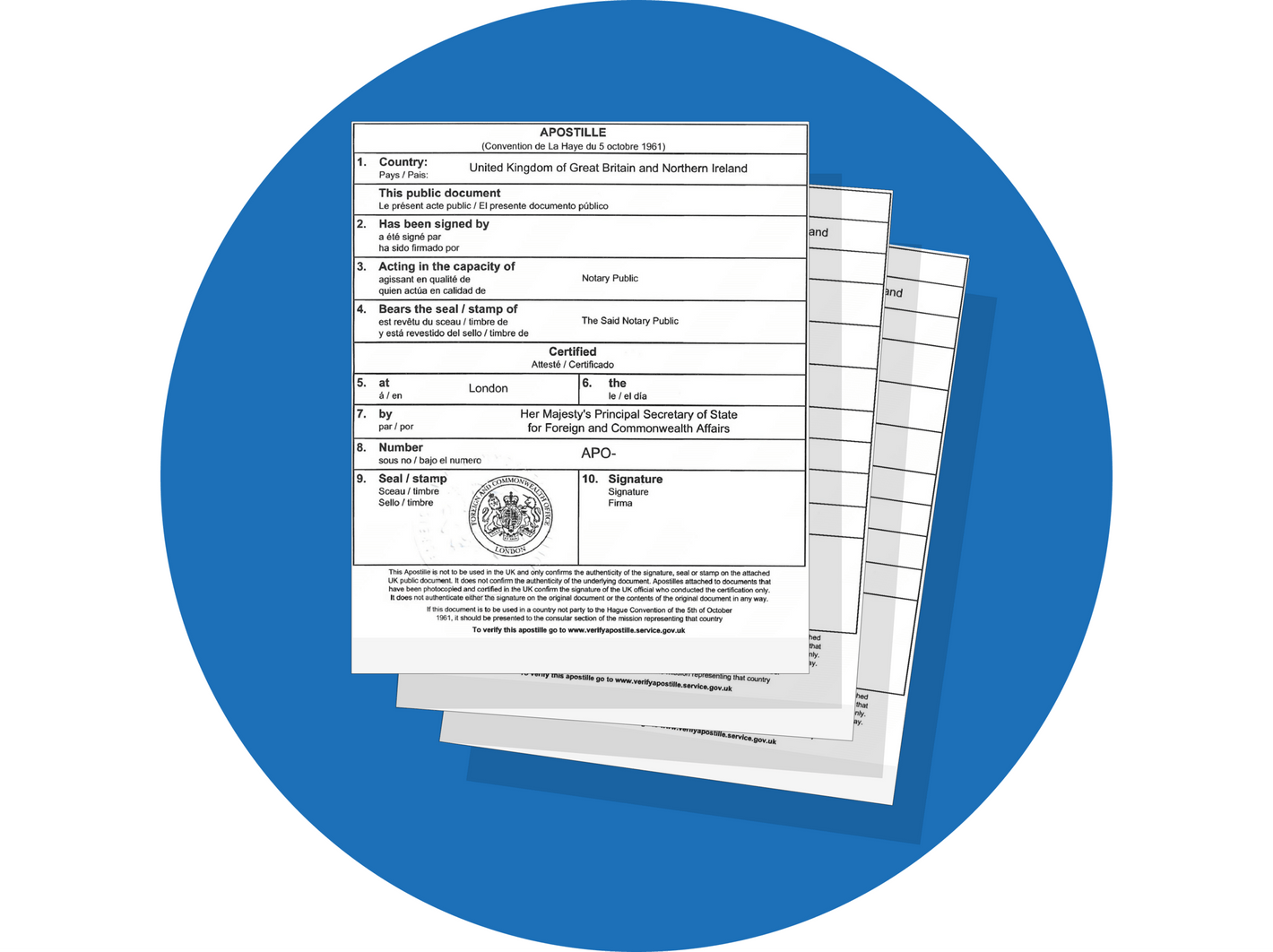What is an Apostille?
An Apostille is a certificate issued under Article 3(1) of the Convention of 5 October 1961 Abolishing the Requirement of Legalisation for Foreign Public Documents, commonly known as the Hague Apostille Convention.
It is an internationally recognised form of authentication that certifies the authenticity of the origin of a public document—specifically confirming the signature and/or seal of the public official who issued or certified it.
This certification allows the document to be legally used in another country that is a member of the Convention, without the need for further legalisation or embassy authentication.
Example:
If you have a UK birth certificate, a degree, or a marriage certificate, and you need to use it in another country (like France or the UAE), you’ll usually need to get it apostilled first. Once the Apostille is added, the document is accepted overseas—no embassy visit required.
















